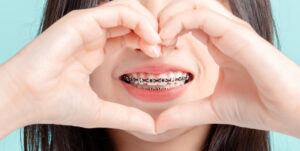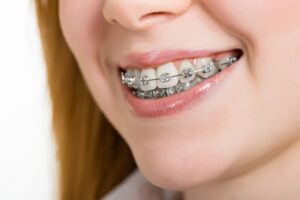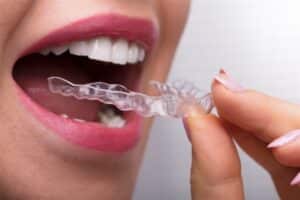Do Braces Hurt? Tips for Easing the Pain
Braces are a common path to achieving a straighter smile, but the question on many minds is: Do braces hurt? While some discomfort is normal, it’s temporary and manageable with a few simple tips. Knowing what to expect and how to ease the pain can make the process much easier.
What to Expect When You Get Braces
When braces are first fitted, you might feel some tightness or pressure. This sensation happens because the braces start working to shift your teeth into position. The adjustment period usually lasts a few days, during which you may notice sensitivity in your teeth and gums. Discomfort is most common around the brackets and wires, especially where they touch your cheeks and lips.
Why Braces May Cause Pain
Braces cause pain because they apply consistent pressure to move your teeth. This pressure can make your teeth and gums feel tender, especially during adjustments. The wires and brackets might also irritate the soft tissues in your mouth. While this can feel uncomfortable, it’s a sign that your treatment is progressing.
Simple Ways to Soothe Sore Teeth
Cold compresses for quick relief
Applying a cold compress to your jaw can reduce swelling and numb soreness. Wrap ice in a cloth to avoid direct contact with your skin.
Over-the-counter pain relief options
Pain relievers like ibuprofen or acetaminophen can ease tenderness. Always follow the dosage instructions and consult your orthodontist if unsure.
Avoiding crunchy or hard foods
Stick to softer foods like soups, mashed potatoes, and smoothies. This reduces pressure on your teeth and prevents unnecessary pain.
Protecting Your Mouth From Irritation
Orthodontic wax can prevent brackets and wires from rubbing against the inside of your mouth. Apply a small amount to the areas causing discomfort. This creates a barrier and reduces irritation.
Keeping brackets and wires from causing sores requires regular checks. Ensure there are no sharp edges, and let your orthodontist know if adjustments are needed. Using a saltwater rinse can also soothe irritated areas.
Good oral hygiene helps reduce discomfort and prevent further irritation. Brushing and flossing carefully keeps food particles from getting stuck, which can worsen sensitivity.
Adapting Your Eating Habits
During the adjustment period, focus on soft foods that require little chewing. Soups, yogurt, mashed potatoes, and scrambled eggs are good choices. These options minimise pressure on sensitive teeth.
Avoid hard, crunchy, or sticky meals when soreness peaks. Foods like nuts, popcorn, and chewy candies can irritate your mouth or damage your braces.
Incorporate softer textures into your regular meals. Choose steamed vegetables, pasta, or rice dishes to keep your diet balanced while protecting your teeth and gums.
When to Reach Out for Help
- Pain feels severe or doesn’t improve after a few days.
- Wires or brackets feel too tight or cause significant irritation.
- Regular check-ups are missed or adjustments are delayed.
Your orthodontist can make necessary changes to ease discomfort and ensure your treatment stays on track. Don’t hesitate to ask for help when something doesn’t feel right.
Alternatives for Braces
Braces are not the only solution for achieving straighter teeth. Modern orthodontics offers several options that cater to different needs and preferences.
Clear Aligners
Clear aligners, such as Invisalign, offer a discreet way to straighten teeth. These removable trays gradually shift teeth into position without the need for brackets or wires. They suit individuals looking for flexibility, as they can be removed for eating and cleaning.
Lingual Braces
Lingual braces are placed on the back of your teeth, making them nearly invisible from the front. They work like traditional braces but provide a more discreet option. They can, however, feel less comfortable initially due to their placement.
Ceramic Braces
Ceramic braces function like metal braces but use tooth-coloured or clear brackets. This makes them less noticeable and a popular choice for those wanting a subtler look during treatment.
Retainers for Minor Adjustments
For small corrections, retainers can help realign teeth without the need for full braces. Your orthodontist may recommend them if only minor adjustments are needed.
Veneers for Cosmetic Adjustments
Veneers don’t straighten teeth but can create the appearance of a perfect smile. These thin shells cover the front of teeth, masking gaps or slight misalignments. They are a quick cosmetic solution rather than a functional treatment.
Choosing the right alternative depends on your specific dental needs and lifestyle. Your orthodontist can help you decide which option fits your goals.
FAQs About Braces
How long does it take to get braces put on?
The process of applying braces usually takes about one to two hours. This includes cleaning the teeth, attaching the brackets, and fitting the wires.
Can I still play sports while wearing braces?
Yes, you can play sports with braces. It’s recommended to wear a mouthguard to protect your teeth and braces from impact during contact sports.
Are there any age restrictions for getting braces?
There are no strict age limits for braces. While most people get them in their teens, adults can also benefit from orthodontic treatment.
Will braces affect my speech?
Braces may slightly affect speech during the first few days as your mouth adjusts. Any changes usually disappear once you get used to them.
Can I whiten my teeth while wearing braces?
Teeth whitening is not recommended with braces since the areas covered by brackets won’t whiten, leading to uneven results. It’s better to wait until after your treatment.
Do braces cause bad breath?
Braces can contribute to bad breath if food gets stuck around brackets and wires. Maintaining proper oral hygiene helps prevent this issue.
How often will I need to visit my orthodontist during treatment?
Most orthodontists schedule appointments every four to eight weeks to adjust braces and monitor progress. Your orthodontist will set a schedule based on your specific needs.
Can I eat ice cream or drink hot beverages with braces?
Yes, you can enjoy ice cream or hot drinks, but avoid extremes in temperature as they may temporarily increase sensitivity.
What happens if a bracket or wire breaks?
If a bracket or wire breaks, contact your orthodontist as soon as possible. They will fix the issue to keep your treatment on track.
Will I need a retainer after my braces are removed?
Yes, most people need a retainer after braces to maintain their new smile. Retainers prevent teeth from shifting back to their original positions.






 Dillon Orthodontic Care
Dillon Orthodontic Care